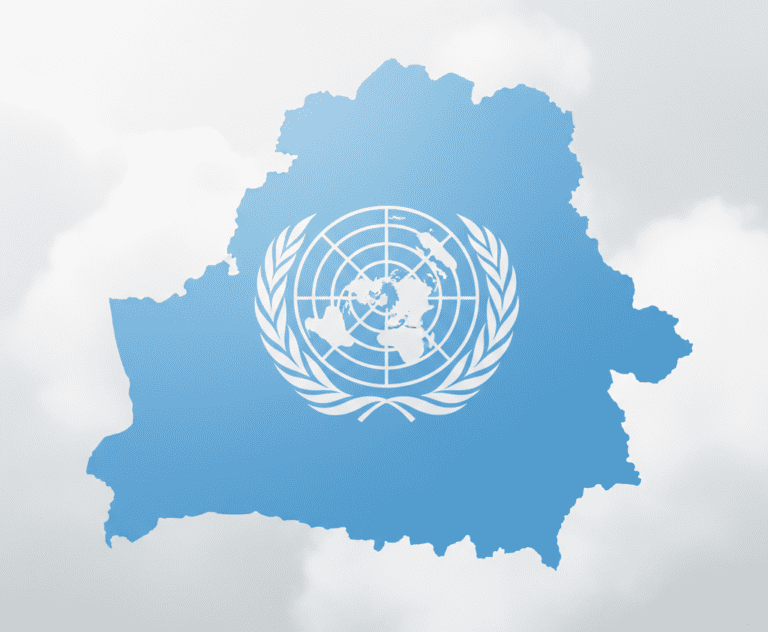“We Live in Constant Fear”: UN Documents State Harassment of People Who Use Drugs in Belarus
Geneva, August 2025 – People who use psychoactive substances in Belarus face systematic harassment, surveillance, and persecution by state authorities, according to a United Nations report submitted ahead of the country’s human rights review in November 2025.

The report, compiled from stakeholder submissions to the UN Human Rights Council, reveals a pattern of state-sanctioned intimidation that extends far beyond law enforcement into employment, healthcare, and daily life—creating an environment where seeking help for substance use disorders can result in losing one’s job, privacy, and freedom from constant monitoring.
Surveillance, Pressure, and Employment Discrimination
People enrolled in opioid substitution therapy (OST) programs report being closely monitored by law enforcement officials who treat medical treatment as grounds for suspicion rather than healthcare. This surveillance creates a chilling effect: individuals who need treatment must weigh the health benefits against the near-certainty of state harassment.
The harassment takes multiple concrete forms. Workers have been fired specifically because of their participation in OST programs, with employers either pressured by authorities or acting on disclosed medical information they should never have received. Patient medical details are routinely shared with drug control officials without consent, obliterating the doctor-patient relationship and transforming healthcare settings into sites of surveillance. People who use controlled substances face regular intimidation from police and drug control authorities, creating an atmosphere where they are treated as perpetual suspects rather than individuals with health needs. Beyond employment, people who use psychoactive substances face discrimination in accessing housing, public services, and other basic necessities.
The Silence of Fear
Perhaps the most damaging aspect of this harassment is how it functions through fear. According to the UN report, victims consistently refuse to report abuses publicly because doing so would invite further stigmatization and intensified pressure from authorities.
This creates a vicious cycle: harassment continues unchecked because victims cannot safely speak out, and the lack of public reporting allows authorities to deny the problem exists. People seeking treatment must make impossible choices between their health and their safety, between accessing evidence-based care and maintaining their livelihoods. The climate of fear is not accidental—it is the intended outcome of a system designed to punish rather than support people who use drugs.
Compounding Vulnerabilities
People living with HIV who also use controlled substances face compounded harassment and discrimination. They must navigate both the stigma associated with HIV and the persecution directed at people who use drugs, creating layers of barriers to accessing life-saving healthcare. This intersectional harassment places some of Belarus’s most vulnerable populations in impossible situations: they need medical care urgently, yet seeking that care exposes them to state persecution, employment loss, and social ostracization.
A Call to End State-Sanctioned Persecution
The stakeholder submissions to the UN include clear recommendations for ending the harassment of people who use psychoactive substances. The state must cease treating people who use substances as threats to be monitored and instead recognize them as individuals with health needs deserving of dignity and privacy. All addiction treatment must be voluntary and based on informed consent, as coerced treatment is neither ethical nor effective and compounds the harassment people already face.
Absolute protection of patient privacy must be guaranteed. Medical information should never be shared with law enforcement or drug control officials without explicit consent and proper legal procedures. Police and drug control authorities must cease intimidating and surveilling people in treatment programs, allowing healthcare settings to function as safe spaces rather than extensions of law enforcement. All treatment decisions must respect individual autonomy and be made free from pressure, coercion, or fear of consequences.
International Standards vs. Persecution
The harassment documented in Belarus directly violates the country’s obligations under international human rights law. The right to health includes access to treatment without discrimination or fear of persecution. Privacy rights prohibit the unauthorized disclosure of medical information. The principle of human dignity is incompatible with treating people who use drugs as perpetual suspects deserving of surveillance.
Evidence from countries that have moved away from punitive approaches shows clear benefits: reduced HIV transmission, decreased overdose deaths, better treatment outcomes, and successful social reintegration. These countries treat substance use as a health issue requiring support, not a crime requiring harassment.
November 2025: A Moment of Accountability
The Universal Periodic Review session in Geneva this November represents an opportunity for the international community to demand that Belarus end its harassment of people who use psychoactive substances. The review will examine Belarus’s compliance with its human rights obligations, including the right to health and freedom from discrimination.
Civil society organizations—many now operating from exile after being forcibly dissolved within Belarus—continue documenting these abuses at considerable personal risk. Their testimony provides crucial evidence of systematic persecution that authorities attempt to hide behind victims’ fear of speaking out.

Можно, если осторожно
Вступай в наш клуб за гуманную наркополитику. Твои данные не будут переданы третьим лицам.
